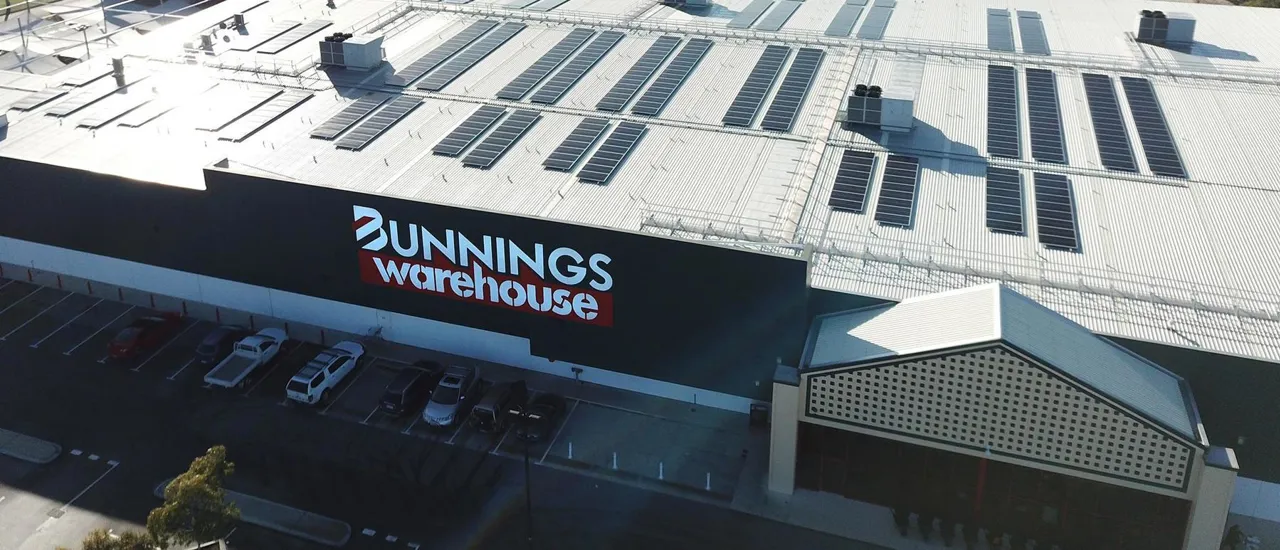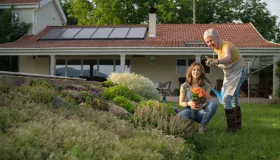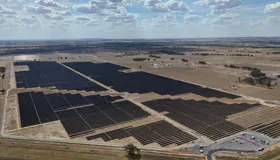
Wesfarmers switches on green energy at iconic retail sites
Renewable shopping experience for Bunnings and Officeworks
The CEFC is backing Wesfarmers to invest in technologies so it can generate and use renewable energy at selected Officeworks and Bunnings sites across Australia.
$100 million
CEFC commitment
Solar powered
retailers
EV charging
pilot
Many Australians would have enjoyed a Bunnings Saturday sausage sizzle or taken the path to Officeworks for those back-to-school necessities. At selected sites they will soon be able to add vehicle charging to their store visits while enjoying solar-powered air conditioning.Ian LearmonthCEO, CEFC
Our investment
The CEFC has committed $100 million to Wesfarmers to support investment in a range of distributed energy resources (DER) to accelerate decarbonisation of Bunnings, Officeworks and Wesfarmers Energy, Chemical and Fertilisers (WesCEF) operations.
One of Australia’s largest private sector employers, Wesfarmers is seeking to fast-track decarbonisation measures by investing in rooftop solar, battery storage, energy efficiency initiatives, and an electric vehicle smart charging pilot at selected Bunnings and Officeworks sites. Wesfarmers is also looking to undertake a study to decarbonise WesCEF.
The CEFC has previously worked with Wesfarmers on targeting operational emissions reduction, investing $25 million in a $1 billion Wesfarmers sustainability-linked bond issued in 2021. The issuance was the first Australian dollar denominated sustainability-linked bond.
We have long managed our businesses with climate and carbon awareness and we are committed to continuing to take action to reduce our impact on the environment. We are proud to be working again with the CEFC to accelerate our decarbonisation activities.Anthony GianottiChief Financial Officer, Wesfarmers
OUR IMPACT
Taking the emissions out of retail
The retail sector is one of the more energy-intensive industries in Australia, accounting for around 50 per cent of energy use in the commercial property sector and five per cent of Australia’s greenhouse gas emissions.1
Retail stores can consume significant amounts of energy for lighting, heating and cooling. Taking advantage of warehouse rooftops for solar installations and combining solar with other DER technologies can help optimise energy use and potentially improve customer experience.
Through this investment, CEFC capital supports an active approach to decarbonisation by a major Australian company. Wesfarmers ’ market-leading approach also has the potential to deliver broader benefits, strengthening the Australian energy market by increasing the deployment of clean energy resources, which can help stabilise the grid and increase energy efficiency.Richard LovellExecutive Director, CEFC
Market-leading approach
The CEFC is backing the market-leading approach of Wesfarmers that focuses on using existing assets to support renewable energy generation and energy storage which are crucial for energy demand management.
Wesfarmers expects to have installed or upgraded facilities with onsite renewable energy generation technologies at select Bunnings and Officeworks sites by the end of 2025.
By using DER to support energy demand flexibility, Wesfarmers aims to proactively manage energy consumption across its retail sites, making energy use more efficient while facilitating onsite renewable energy generation and storage.
Australian Government, DCCEEW




